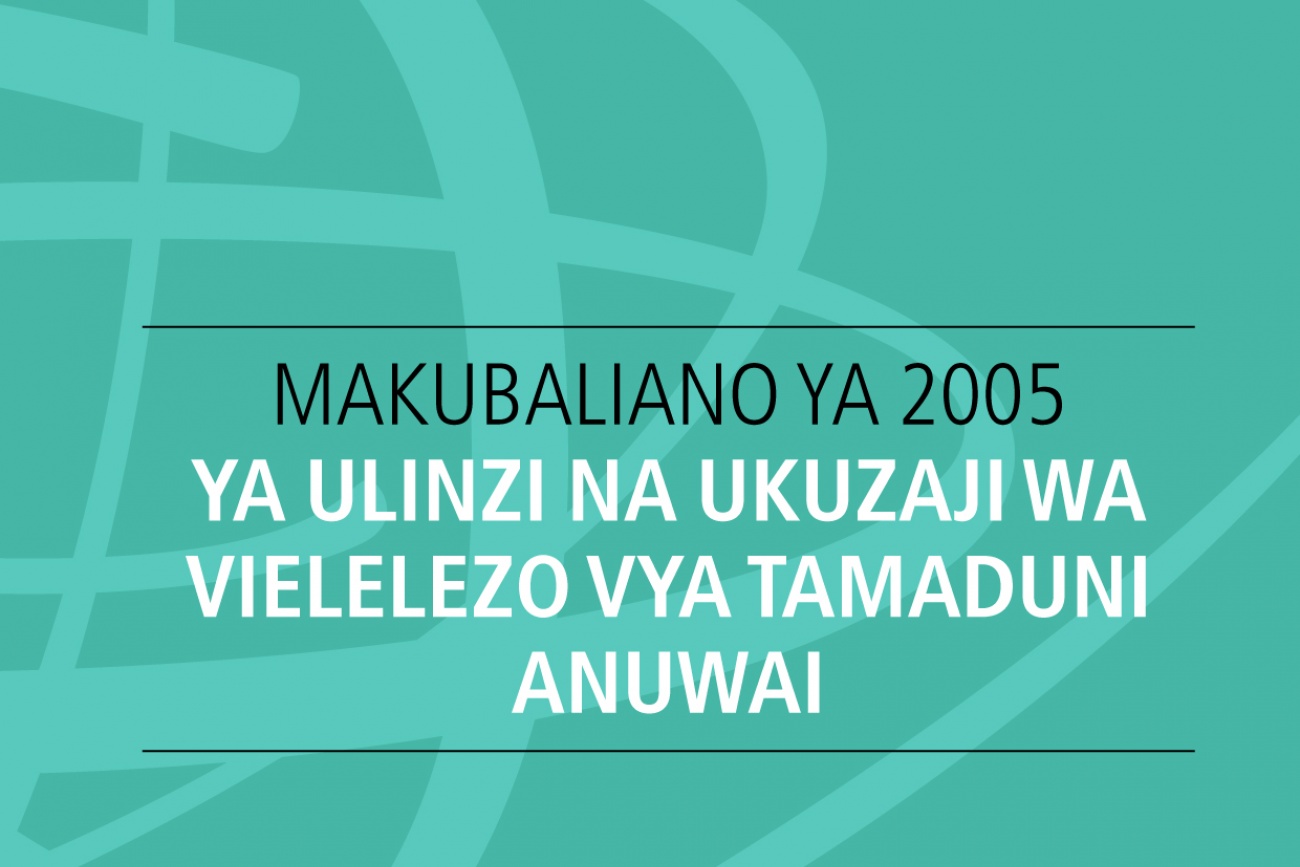Kiswahili version of the 2005 Convention now available
As more and more East African countries look to the cultural and creative industries as a vector for sustainable development, UNESCO puts more tools and resources at their disposition through the UNESCO’s 2005 Convention as a framework for informed, transparent and participatory systems of governance for culture and the creative industries.
With support from Korean Funds-In-Trust, UNESCO published the 2005 Convention for the Protection and Promotion of the Diversity of Cultural Expression in Kiswahili - East Africa’s lingua franca. The passport-size publication, which will enable further dissemination of the Convention text across the region as a working language of the African Union, and will benefit several countries where Kiswahili is a national language including Kenya, Rwanda, Tanzania, Uganda and Union of Comoros in East Africa as well as Burundi, Mozambique, and the Democratic Republic of the Congo(DRC).
Culture and Creativity is a mainspring of development, and is increasingly recognised by governments and development blocs as essential for inclusive economic growth, reducing inequalities and achieving the goals set out in the 2030 Sustainable Development Goals. Moreover, the African Union’s Agenda 2063’s Aspiration 5 aims for “Africa with a strong cultural identity, common heritage, values and ethics’ with one of its priority areas being “cultural heritage, creative arts and business.” To enable the achievement of these goals and aspirations, especially in the dynamic changing world, a sound policy environment for the culture and creative sector is imperative. UNESCO’s 2005 Convention is in the heart of the creative economy, and provides a framework for informed, transparent and participatory systems of governance for culture and the creative industries. 35 Sub-Saharan African countries have ratified the UNESCO 2005 Convention and 11 of the 13 countries in the Eastern Africa Region are also States Parties to the Convention.
The creative industries is among the most dynamic sectors in the world economy, providing new horizons for growth especially in developing countries. Through the adoption of this Convention, the global community formally recognised the cultural and economic nature of contemporary cultural expression produced by cultural professionals. It ensures that artists, professionals, practitioners and citizens worldwide can create, produce, disseminate and enjoy a broad range of cultural goods, services and activities, including their own. The translated document will give greater access to Swahili speaking stakeholders and foster better understanding of the aims of the Convention.
